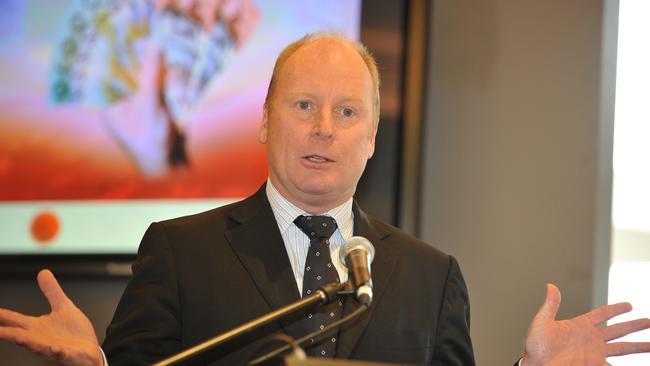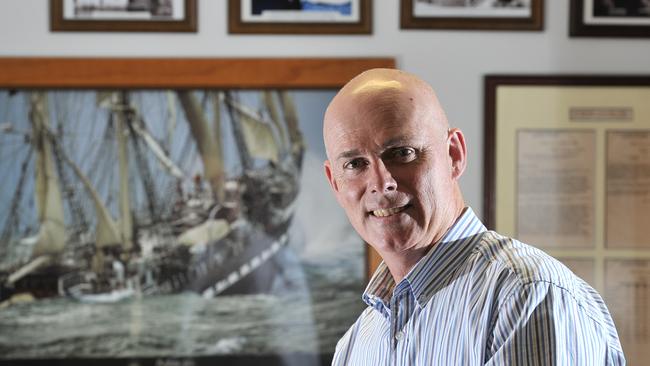Businesses that survive have firm goals, but are flexible enough to adjust
YOU have to question sometimes why people go into business. It is a life of independence, that’s for sure, but also of slavery.

YOU have to question sometimes why people go into business. It is a life of independence, that’s for sure, but also of slavery.
The business-owner is the one whose house or bank balance is on the line and whose efforts to make a dollar are confronted by staff, competition and even the customers. They are the people who spend evenings completing BAS statements, wages, superannuation and workers compensation forms and who then have to think about ways to sell more product, and how to make the manufacturing or distribution more cost-effective.
To succeed, a business owner needs a thick hide and a hearty sense of humour. But if debts are mounting it’s desperately hard to keep jolly. There is nobody who has ever gone into business without stars in their eyes.
The greed and fear equation here is that creating a business is about spotting an opportunity to make money. The fear is of losing what you have already got. That’s what drives businesspeople to work astonishing hours and — when times are tough — to forgo wages when staff are being paid.
Perhaps the idea of getting into a small business, especially, is to ease back your expectations. To pay a mortgage, keep food on the table and to send the kids to school. These are reasonable ambitions. And perhaps the real test of any business’s viability is to ask the questions whether it can achieve these very basic goals.
If the answer is no, then it’s back to the drawing board. But business owners that I meet tend to share a stubborn determination to graft on during the tough times — or until the creditors or tax office finally call it a day.
Our case study this week, EH Brett & Sons, is a classic example of a company that perhaps should have been closed many times in its 130-year life but which still exists because its management changed strategy and remained dogged. It’s perhaps the most common approach of small business operators.
This is where the business-plan becomes management’s most valuable tool. By continuously appraising the current and future market, and the original plan, it becomes easier to see the barriers to success in most companies. The biggest issue, I suggest, is still that many companies do not have a proper business plan or do not review them often enough.
One of the great hidden sources for small and medium-sized business is the business.gov.au website. It is a wonderful resource for a range of tools, including business plan templates.
Determine who the plan is for. Does it have more than one purpose? Will it be used internally or will third parties be involved? Deciding the purpose of the plan can help you target answers. If third parties are involved, what are they interested in? Don’t assume they are just interested in the finance part of your business. They will be looking for the whole package.
The other point about a business plan is that a business must sometimes make hard decisions, and remain flexible enough to bend with a changing market.
Successful, sustainable business is all about looking ahead and remaining nimble enough to change. That doesn’t make it less stressful, but it might give you a better chance of staying around for 130 years — like EH Brett.
SUN STILL SHINES ON SHADE BUSINESS
IT’S hard to imagine any company that has survived since sailing ships. It’s even harder to imagine a company that is doing, largely, the same thing as it did when sailing ships dominated the high seas.
Then you discover EH Brett & Sons — rope-makers and canvas-merchants. And you will find Greg and Ross Penman, whose great-grandfather Edwin Henry Brett became an apprentice sail-maker at age 10.
Brett came to Australia at age 20 as a sail-maker on one of those sailing vessels and — after convincing his brother to join him from Guernsey — started a sail-loft in Newcastle.
But the steam-age was bearing down on the aspiring businessmen, who had to adapt their ropemaking skills to anything associated: so canopies, cargo nets, canvas.

Edwin had two boys who entered the business — and a daughter, who married John Penman. Penman was said to have been brought into the business to keep the two brothers apart. But even then, the business kept changing. In 1900 it was moved from Newcastle to Balmain when it became obvious Sydney Harbour was the premier shipping destination in Australia.
In the 1920s the company constructed the 2FC radio mast in Sydney (2FC, many incarnations later, is Radio National) because the proprietors at the time thought sail-makers would have the right skills for the job.
Eventually the challenges of any small business wore it down. The business sold its property in Balmain and had become a shell of itself — all that was left was a small hire business.
“At the time there were just three employees, but 34 family shareholders,” Greg Penman said.
“My brother Ross and I thought this was crazy. There had to be some value left in terms of brand and market recognition. We had 10 per cent of the shares so we said: ‘Let’s buy the other 90 per cent out’.”
The brothers got back to manufacturing and recognised sunshades were becoming more important. He now says: “We lead the world in fabric development for sun protection.”




